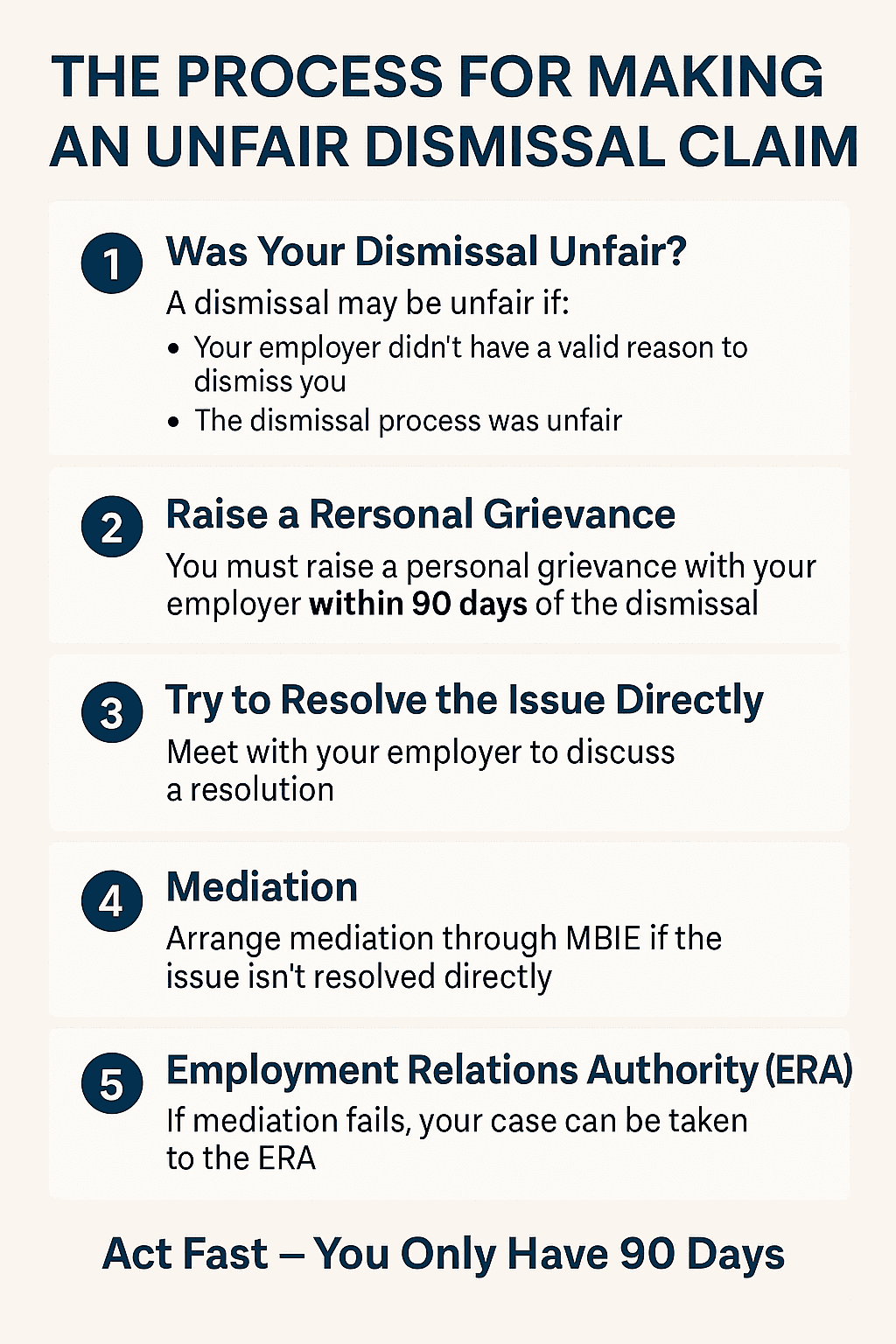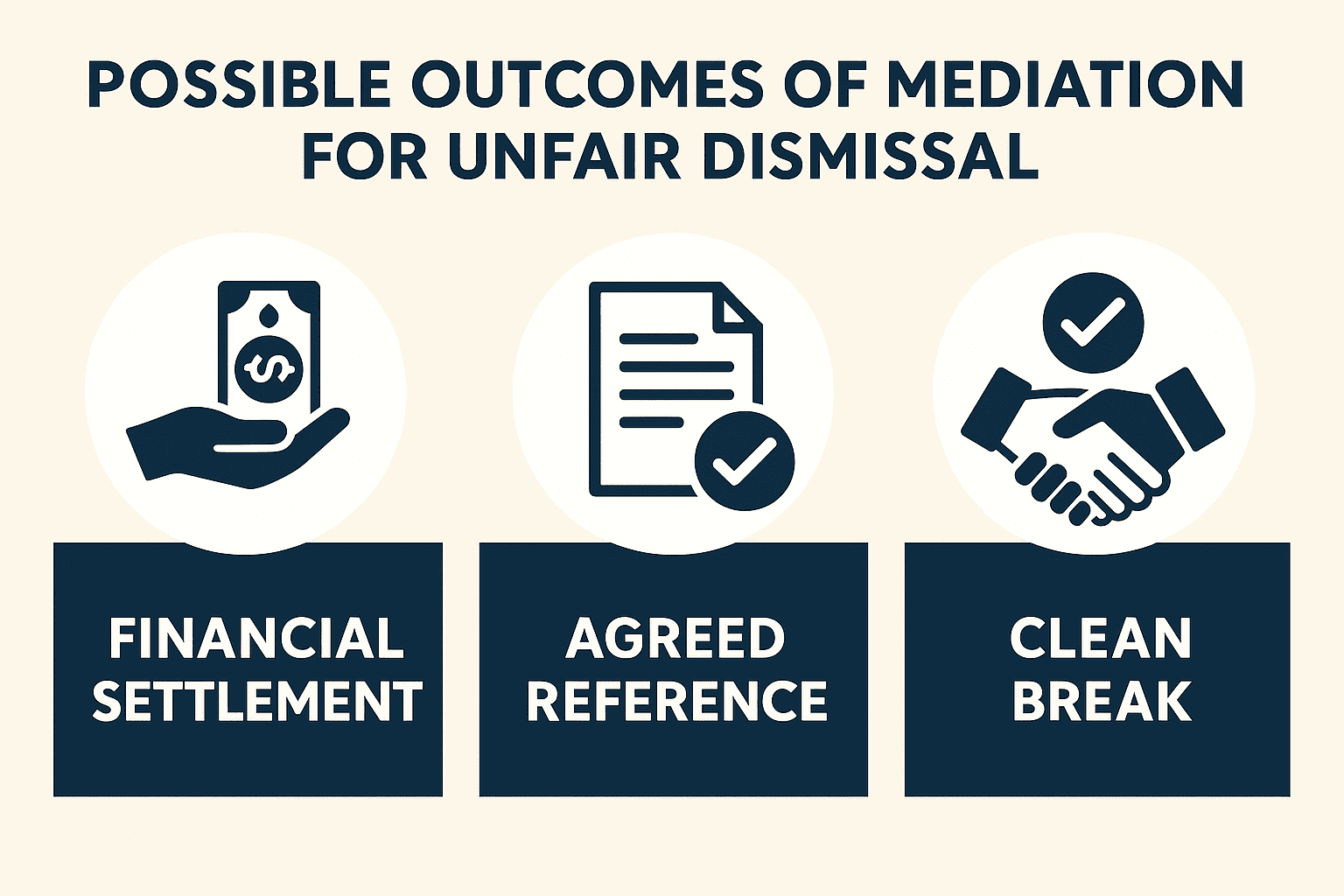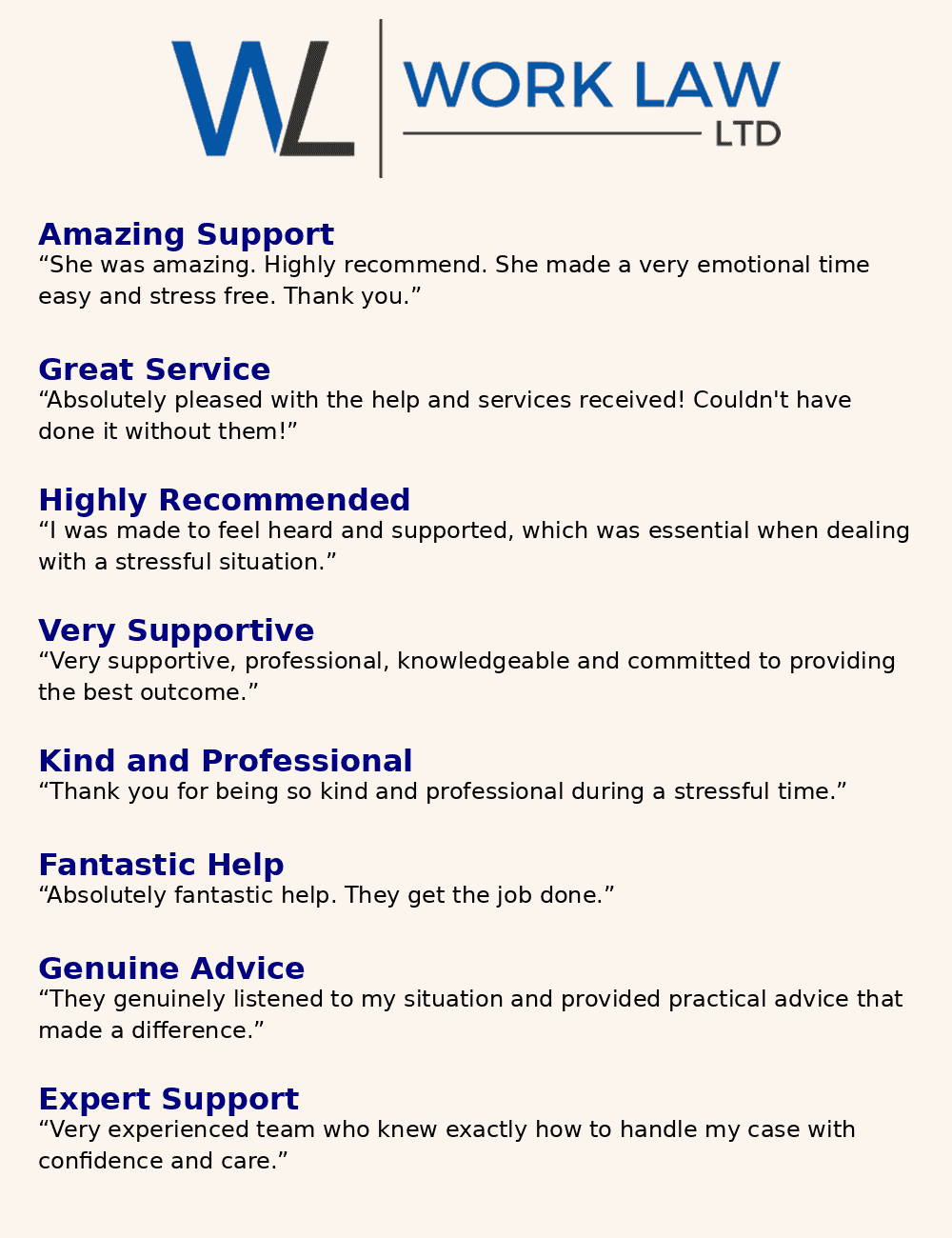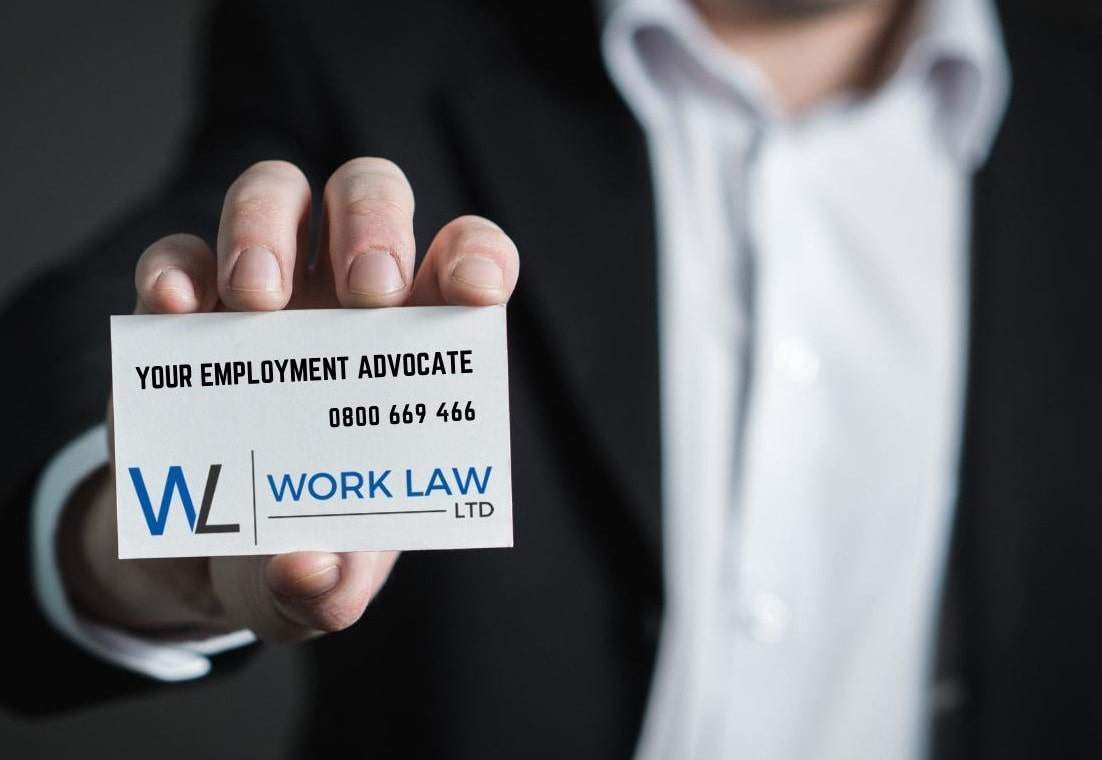Unfair Dismissal
Unfair dismissal occurs when an employee is let go without a valid legal justification or a proper formal procedure.
The Legal Process for Unfair Dismissal Claims in New Zealand
If you believe you have been unfairly dismissed, there is a formal process you can follow to challenge the dismissal and seek a remedy under New Zealand employment law.
1. Identify Whether the Dismissal Was Unfair
A dismissal may be considered unfair if:
-
The employer did not have a good reason for the dismissal (e.g., misconduct, redundancy, poor performance).
-
The employer did not follow a fair process, including giving the employee an opportunity to respond to concerns.
Unfair dismissal can include:
-
Constructive dismissal (when an employee resigns due to intolerable conditions).
-
Summary dismissal without investigation or warning.
-
Redundancy that is not genuine or procedurally fair.
2. Raise a Personal Grievance
You must raise a personal grievance with your employer within 90 days of the dismissal or the action giving rise to the grievance.
How to raise a grievance:
-
It must be in writing, or at least clearly communicated.
-
Specify that you believe the dismissal was unjustified or unfair.
-
Include key dates and facts.
Tip: Engaging an employment advocate can help ensure your grievance is correctly framed and includes all relevant grounds.
3. Try to Resolve the Issue Directly
After a grievance has been raised, many disputes are resolved through early negotiation. This might include:
-
A meeting with your employer to discuss a resolution.
-
An offer of compensation.
-
A settlement agreement.
You don’t have to accept anything you’re not comfortable with. We’ll help you understand your options and protect your interests.
4. Mediation
If the issue isn’t resolved directly, we can arrange mediation through the Ministry of Business, Innovation and Employment (MBIE). Mediation is:
-
Free and confidential.
-
A chance to speak freely with a neutral mediator present.
-
Often the quickest way to reach a fair resolution.
Common outcomes at mediation include:
-
A financial settlement.
-
An agreed reference.
-
A clean break without ongoing stress.
5. Employment Relations Authority (ERA)
If mediation doesn’t lead to a resolution, your case can be taken to the Employment Relations Authority (ERA)—a formal process where your case is presented and evidence is heard.
The ERA can award:
-
Compensation for lost income.
-
Damages for stress and humiliation.
-
In some cases, reinstatement to your job.
We will prepare your case, represent you, and guide you.




CONTACT US FOR A FREE CASE EVALUATION
LET’S GET LEGAL
CONTACT FORM
What our clients are saying
Sheryl the best in the business
Sheryl the best in the business, great communication best and quickest results.thanks again.
Amazing Sheryl
Sheryl was amazing. Highly recommend. She made a very emotional time easy and stress free. Thank you
Sandy was great to deal with.
Sandy was so lovely to deal with. She had a reassuring demeanor and her wealth of experience was evident. I appreciate the advice and support. Thank you Sandy.
